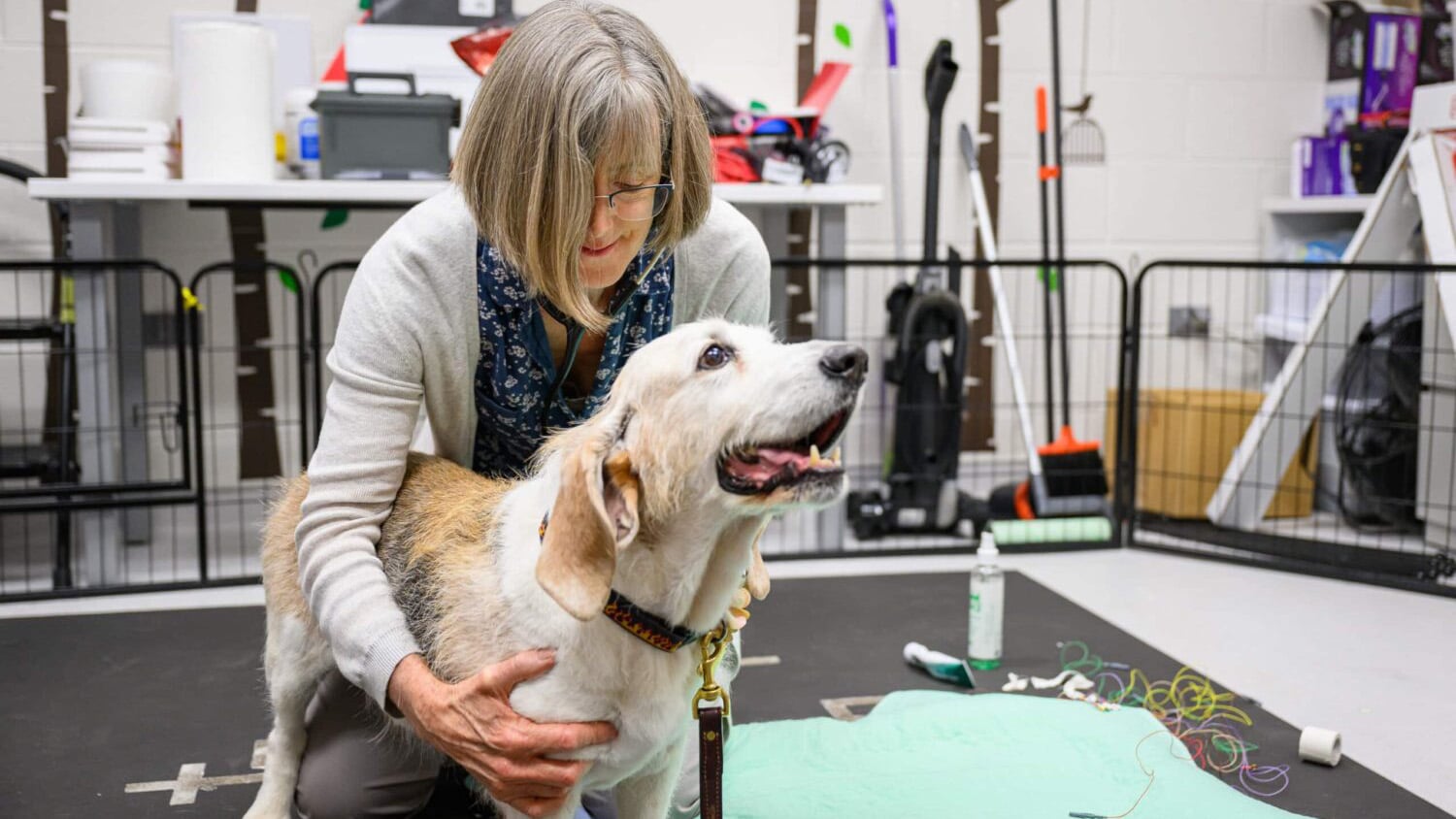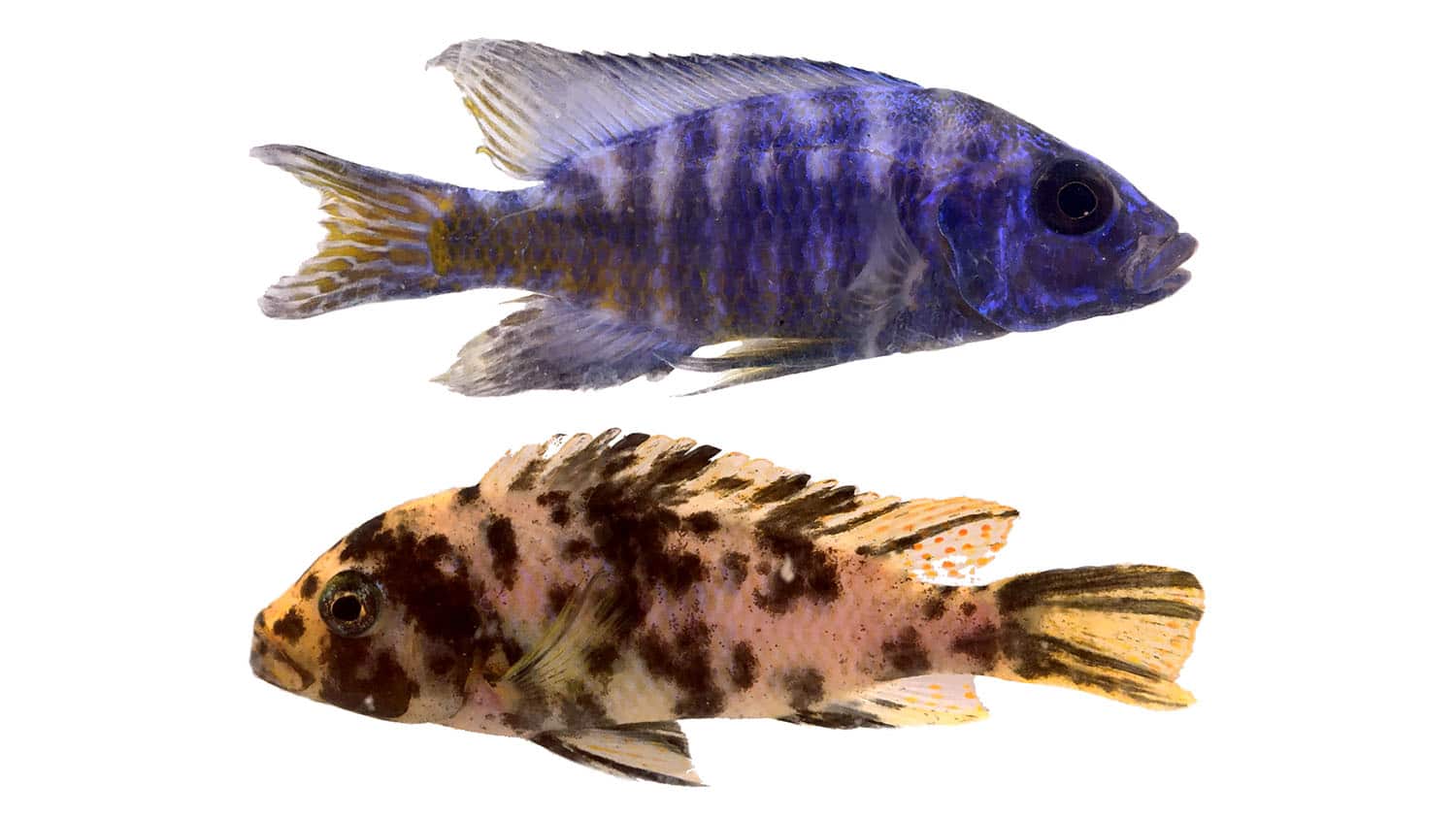Can Our Dogs Live Longer, Healthier Lives?
Natasha Olby with NC State's Veterinary Hospital is researching the aging process in dogs and if their health, and life, can be prolonged.
We all want our dogs to live long, healthy lives, and to be able to enjoy their time with us to the fullest. For Natasha Olby of NC State’s College of Veterinary Medicine, that means understanding how aging affects dogs not just physically, but also mentally.
Olby, the Dr. Kady M. Gjessing and Rahna M. Davidson Distinguished Chair in Gerontology at NC State, studies the neuroaging process in dogs. Specifically, she’s interested in the interplay between an aging nervous system and neurodegenerative diseases like dementia. She has developed numerous protocols for quantifying what happens to dogs’ sensory, motor and cognitive abilities as they get older, and is now conducting clinical trials on potential interventions and therapies for aging dogs. Her work in this area has the potential to aid humans as well.
“One of the big challenges to modern society is to maintain health span as well as lifespan,” says Olby. “Now, with improved health care for pets, dogs are surviving for longer and we come across the exact same challenges [as we do with people]. I think it’s critically important that we don’t say, ‘They’re just getting old,’ but we pay due attention to the process, understand which things we can alter within the process and advance our understanding of aging, in general.”
- Categories:



